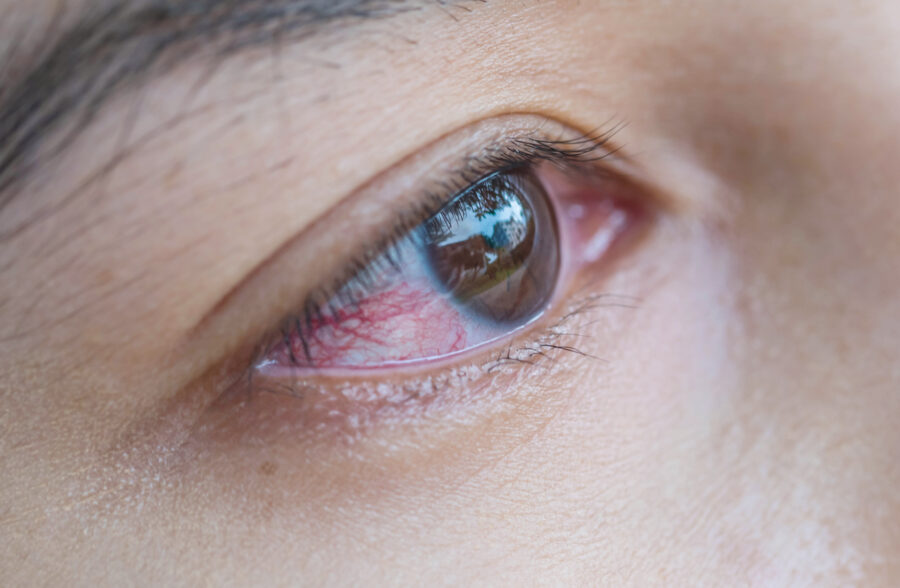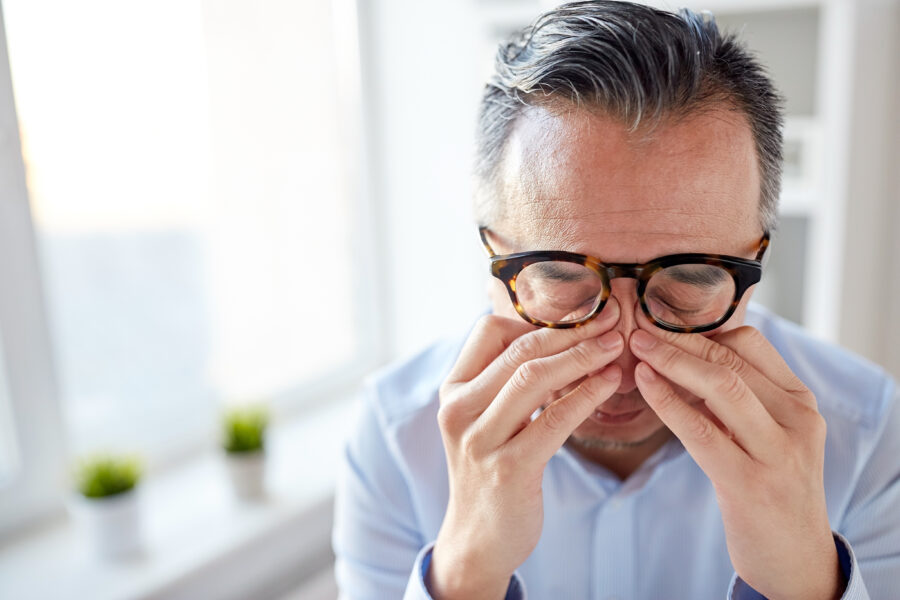Blog post
A Guide to Dry Eyes: Symptoms, Causes, Treatments and Prevention

Matthew Burford BSc(Hons) Optometry MCOptom - Domiciliary Optician and Professional Services Manager at OutsideClinic
5 minute read time
What is dry eye?
Dry eye is a condition where the eyes don't produce enough tears or the right quality of tears to be adequately lubricated and nourished.
For some, dry eyes is temporary and may be caused by specific circumstances like computer use. For others, it's chronic and may require ongoing management.
It’s most common for individuals to experience it in both eyes, but it’s possible to only get it one eye.

What are the symptoms of dry eye?
Symptoms of dry eye syndrome include:
- redness / bloodshot eyes
- a scratchy sensation
- a stinging sensation
- blurred vision
- sensitivity to light
- watery eyes
- feeling of having something in the eye

What causes dry eyes?
Several factors can lead to dry eyes:
- Age
- Certain medications
- Medical conditions
- Environmental factors
- Hay fever or allergic reactions can lead to inflammation and reduce tear production, resulting in dry eyes.
- If you experience dry eyes specifically in the morning or at night, it could be because you’re sleeping with your eyes slightly open, or the indoor air might be dry.
- Some patients may experience dry eyes temporarily after cataract surgery. It's crucial to consult with your Optician for advice about managing this.
Can dry eyes cause blindness?
While dry eyes can cause complications that might impair vision, it's relatively rare for it to lead to complete blindness.
Regular eye tests, early detection, and appropriate treatment will usually prevent severe complications. It's essential for those experiencing symptoms of dry eye to seek advice and treatment from an Optician.
Can dry eyes cause headaches?
While dry eyes themselves aren't a direct cause of headaches, the symptoms and consequences of dry eyes can lead to behaviours or conditions that provoke headaches.
People with dry eye symptoms may squint, strain or blink more than usual, trying to see clearly. This continuous eye strain can contribute to tension around the eyes and forehead, leading to headaches.
What's the treatment for dry eye syndrome?
While some cases of dry eye can't be completely cured, the symptoms can be managed.
For immediate relief, use a warm compress. These are designed to release natural oils to maintain tear film and occular comfort. At OutsideClinic, our Optometrists recommend the MGDRx EyeBag. The MGDRx EyeBag is an easy to use, microwaveable, warming eye mask which can be used up to 200 times.
In most cases, ongoing treatment options include lubricating eye drops, medications and specific lifestyle changes.
In severe cases, surgical options like punctal cautery, where the tear ducts are permanently closed to retain more tears on the eye's surface, might be considered.
How can I prevent dry eyes?
- Stay hydrated
- Stay away from direct airflow from fans or air conditioners
- Use a humidifier in dry environments
- Wear sunglasses outdoors to protect your eyes from wind and the elements
- Follow the 20-20-20 rule (every 20 minutes, look at something 20 feet away for 20 seconds)
- Increase omega-3 intake, which might help improve tear quality
- Keep eyelids clean by using a product like Blephagel
- Consult your GP if you believe medication may be causing dry eyes

By Matthew Burford BSc(Hons) Optometry MCOptom - Domiciliary Optician and Professional Services Manager at OutsideClinic
Matthew graduated from Aston University in 2004 with a degree in Optometry.



